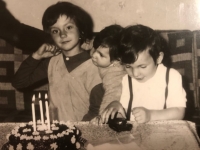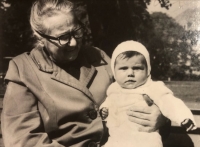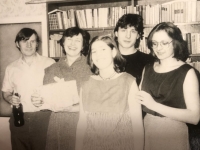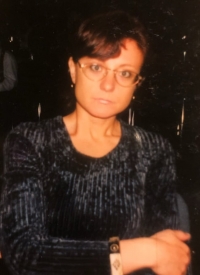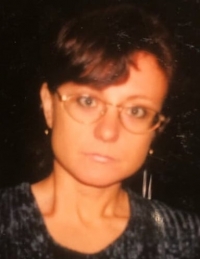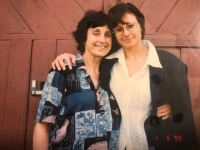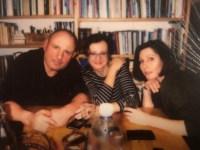I screamed there was a baby at home

Stáhnout obrázek
Ludmila Palatová was born on March 15, 1966 in Prague. At the beginning of the communist regime, her father served five years in the Leopoldov and Valdice prisons for an attempt to emigrate. She raised her three children in a strongly anti-communist manner. The family regularly went to church and Ludmila was even arrested as a teenager on a trip with the Catholic community. Ludmila and her sister attended the demonstration on November 17, 1989 and even got to the National Street, where the demonstration was brutally suppressed. After the Velvet Revolution, she graduated from the Faculty of Education, then began working as a teacher and proof reader. In 2021 she lived in Prague.
